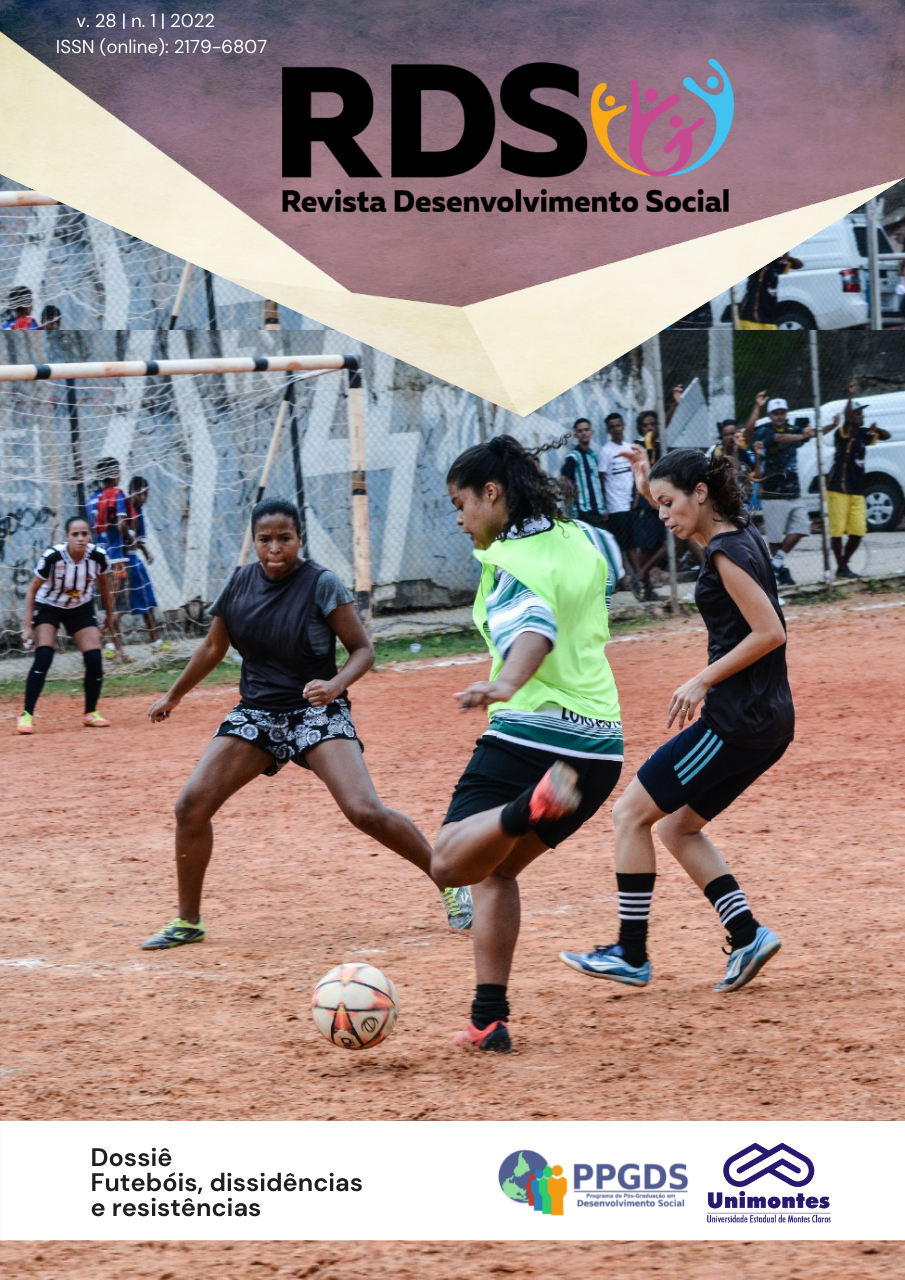CULTURAL TOURISM IN LA GUAJIRA OF THE ORIGINAL PEOPLES, A POSSIBILITY OF DEVELOPMENT FOR THE POST-PANDEMIC TIMES
Cultural tourism in La Guajira of the original peoples, a possibility of development for the post-pandemic times
DOI:
10.46551/issn2179-6807v28n1p221-246Keywords:
Cultural tourism, Colombia, Original towns, The Guajira, WayuuAbstract
This work is part of an investigation of the Master in Social Sciences of the University of La Guajira to analyze the value that the indigenous communities settled on the coast of Mayapo give to culture, tourism and solidarity in their marine-coastal territories. Among the objectives that we intended to study was to identify the economic and social valuation of coastal ecosystems from the Wayuu worldview. This work is justified as part of an investigation in search of economic valuation of the incidence of socio-environmental risks on local production systems. This study aimed to assess the coastal ecosystems of Mayapo located in the municipality of Manaure, through a methodological design that responded to a definition of the territories according to the practices, uses and customs present in the traditions of the Wayuu indigenous community. Likewise, it could serve as an input to create development strategies, land use plans and the design of methodological instruments for the responsible use of ecosystem services provided by areas of high cultural value.
Downloads
References
CÁMARA DE COMERCIO DE LA GUAJIRA. Informe Socioeconómico del Departamento de La Guajira 2017. Riohacha: cámara de comercio de la guajira ,2018.
CARABALI, A. Informe final proyecto Lineamientos para el ordenamiento territorial costero y marino del departamento de La Guajira desde la diversidad cultural. 2018.
CARABALI, A. El camino de los indios vivos. Riohacha: Universidad de La Guajira, 2020
CNPV. Censo Nacional de Población y vivenda. Geovisor 2018. Disponível em: https://geoportal.dane.gov.co/geovisores/sociedad/cnpv-2018/ Acesso em: 21 fev. 2022.
GOBERNACIÓN DE LA GUAJIRA. Plan de Desarrollo 2020-2023. Riohacha: Gobernación De La Guajira, 2020.
JAPPE, A. La sociedad autofaga. Capitalismo, desmesura y autodestrucción. España: Pepitas de Calabaza. 2019.
MCU. Plano de la Mensura hecha para saver la distancia desde la Nueva Villa de San Carlos al Surgidero de Manaure, y de éste á la Ciudad del Rio de el Hacha, y de aqui á dicha Villa de San Carlos, cuia diligencia se practicó por ordenes Expedidas por su Excelencia con fecha de 10 de febrero y 1º de Marzo de este año de 1762. Archivo General de Indias, MP-PANAMA,166. 1762 Disponível em: http://pares.mcu.es/ParesBusquedas20/catalogo/show/22215?nm Acesso em: 20 fev. 2022.
MEXICO. La Gaceta del día miércoles 13 de agosto de 2014, Gaceta: LXII/2SR-20/49549, DÍA INTERNACIONAL DE LAS POBLACIONES INDÍGENAS DEL MUNDO, 2019. Disponível em: https://www.senado.gob.mx/64/gaceta_comision_permanente/documento/49549 Acesso em: 14 fev. 2022.
MORALES MALES, Pablo. "Cultura y territorialidad : aportes etnológicos para la gestión ambiental comunitaria : estudio de caso, comunidad Kumiai de San José de la Zorra (México)." (2003). Disponível em: https://digitalrepository.unm.edu/abya_yala/73 Acesso em: 13 fev. 2022.
ONU. El cambio climático y los pueblos indígenas. 2007. Disponível em: https://www.un.org/es/events/indigenous/2009/pdf/backgrounder_climate_ESP.pdf Acesso em: 15 fev. 2022.
ONU. Objetivos de desarrollo sostenible (ODS). Objetivo 13: Adoptar medidas urgentes para combatir el cambio climático y sus efectos. 2015. Disponível em: https://www.un.org/sustainabledevelopment/es/climate-change-2/ Acesso em: 15 fev. 2022.
ONU. Objetivos de desarrollo sostenible (ODS). Objetivo 6: Garantizar la disponibilidad de agua y su gestión sostenible y el saneamiento para todos. 2015. Disponível em: https://www.un.org/sustainabledevelopment/es/water-and-sanitation Acesso em: 15 fev. 2022.
RAMÍREZ ÁLVAREZ, M. El cambio climático en la guajira frente a los objetivos de desarrollo sostenible de las naciones unidas. 2018.
UNESCO. Convención sobre la protección y la promoción de la diversidad de las expresiones culturales. París, 20 de octubre de 2005. 2005. Disponível em: http://www.unesco.org/new/es/culture/themes/cultural-diversity/cultural-expressions/the-convention/convention-text Acesso em: 11 fev. 2022.
UNESCO. Convención sobre la Protección y Promoción de la Diversidad de las Expresiones Culturales de la UNESCO. 2005
UNESCO. Declaración Universal de la UNESCO sobre la Diversidad Cultural. 2 de noviembre de 2001. 2001. Disponível em: http://portal.unesco.org/es/ev.php-URL_ID=13179&URL_DO=DO_TOPIC&URL_SECTION=201.html Acesso em: 21 fev. 2022.
UNESCO. Plan de Acción de la Declaración Universal sobre la Diversidad Cultural de la UNESCO. 2001
Published
How to Cite
Issue
Section
License
Copyright (c) 2022 Katherin Pérez Mendoza, Carlos Busón, Alexis Carabalí Angola

This work is licensed under a Creative Commons Attribution-NonCommercial-NoDerivatives 4.0 International License.
Esta licença permite que outros(as) façam download do trabalho e o compartilhe desde que atribuam crédito ao autor(a), mas sem que possam alterá-lo de nenhuma forma ou utilizá-lo para fins comerciais.












.png)
.png)




.png)









